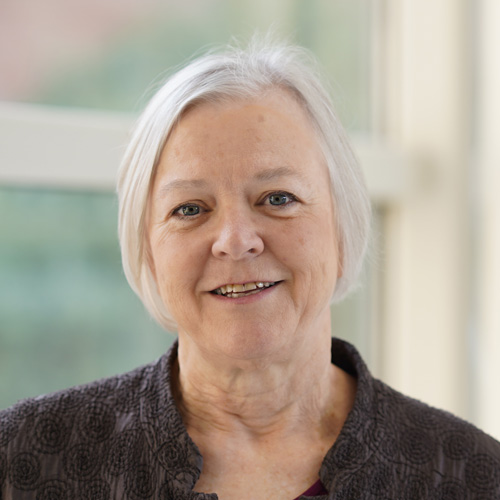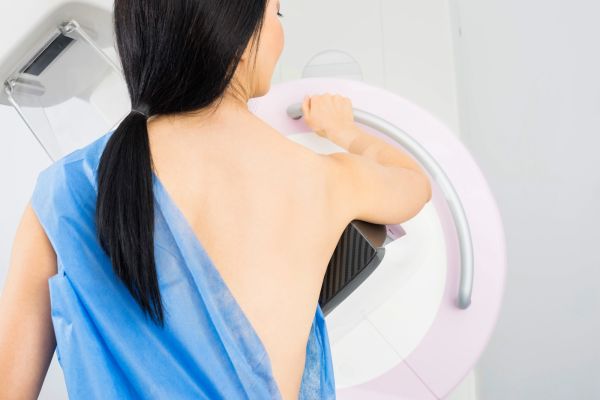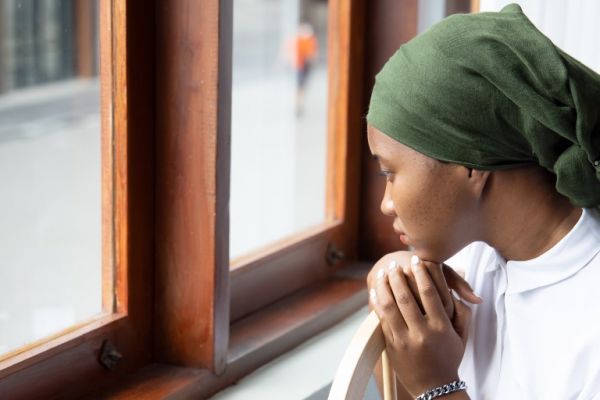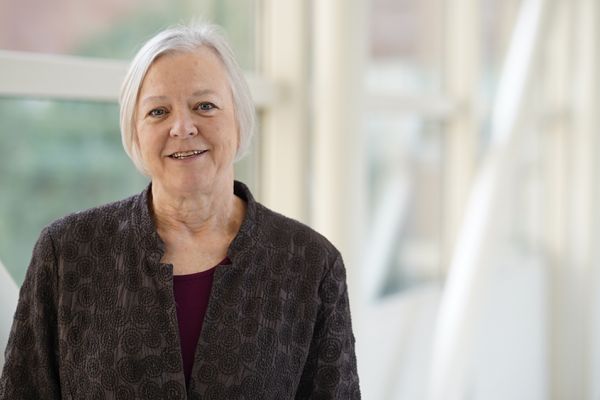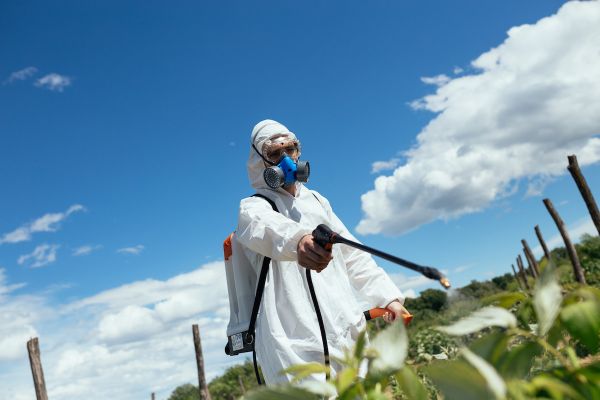Research Interests:
- Risk factors for aggressive breast tumor characteristics in African-American women
- Using Molecular Epidemiology, with biomarkers of susceptibility and exposure, to elucidate cancer etiology
- Examine genetic and modifiable factors that influence cancer treatment outcomes
Biography
I am a molecular epidemiologist whose research focuses on both the etiology of breast cancer and factors that influence treatment outcomes, including toxicities experienced with cancer treatment and cancer survival. My etiologic research focuses primarily on breast cancer disparities and I lead a program investigating genetic and non-genetic factors related to aggressive breast cancer in Black women. For a number of years, I have also been conducting research to understand how lifestyle factors, as well as genetics and tumor characteristics, are associated with treatment outcomes.
I have served as a standing member of the NCI study section related to cancer epidemiology and continue to serve ad hoc on a number of NCI study sections. I was a member of the Board of Scientific Advisors to the Director of the NCI and serve on a number of scientific advisory boards. To date, I have more than 440 publications in peer-reviewed journals, with an h-index of 97.
Positions
Roswell Park Comprehensive Cancer Center
- The Jayne and Phil Hubbell Family Endowed Chair in Cancer Prevention
- Distinguished Professor of Oncology
- Director, Biorepository & Laboratory Services Shared Resource
- Chair – Department of Cancer Prevention and Control
Background
Education and Training
- 1990-1995-PhD - Cancer epidemiology, Roswell Park Graduate Division, State University of New York at Buffalo
Professional Memberships
- American Academy for Cancer Research (AACR)
- American Society for Clinical Oncology (ASCO)
- American Society for Preventive Oncology (ASPO)
Honors & Awards
- 2021 - The Jayne and Phil Hubbell Family Endowed Chair in Cancer Prevention
- 2018 - Appointment to National Cancer Institute Advisory Board Ad Hoc Working Group on Strategic Approaches and Opportunities in Population Science, Epidemiology, and Disparities
- 2017 - Roswell Park Alliance Foundation Endowed Chair in Cancer Prevention
- 2012 - Roswell Park Cancer Institute Excellence in Graduate Student Mentoring Award
- 2009 - New York State Innovation in Breast Cancer Early Detection and Research Award
- 2008 - Invited grant recipient, Breast Cancer Research Foundation
- 2007 - 2012 Appointment to Board of Scientific Advisors to the Director of the National Cancer Institute
- 2007 - Thomas B. Tomasi Achievement Award, Roswell Park Cancer Institute
- 2006 - Park Achiever Award, Scientific Section, Roswell Park Cancer Institute
- 2004 - Avon Foundation-AACR Scholar Host for Avon Foundation-AACR International Scholar Awards in Breast Cancer Research
- 1997 - FDA Outstanding Achievement Award
- 1995 - American College of Epidemiology National Student Prize Paper Award.
- 1995 - Women in Cancer Research Brigid G. Leventhal Training Award.
- 1994 - Scholarship to AACR workshop on Molecular Biology in Clinical Oncology, Aspen, CO
- 1993 - Scholarship to AACR workshop on Histopathobiology of Neoplasia, Keystone, CO
- 1990 - 1993 - National Cancer Institute Predoctoral Fellowship, Roswell Park Cancer Institute
- 1990 - Phi Beta Kappa, summa cum laude, State University of New York at Buffalo
Research Overview
Dr. Ambrosone’s research focuses on the molecular epidemiology of cancer risk and prognosis, to better understand genetic and non-genetic causes of cancer and cancer outcomes, particularly breast cancer. Black women are more likely than women to have tumors with more aggressive characteristics than other U.S. groups; the reasons for these disparities are unclear. To unravel the etiology of aggressive breast cancer in Black women, she leads several epidemiology studies to examine contributions of reproductive and behavioral factors, genetic variability, and epigenetic mechanisms in the development of breast tumors with poor prognosis. She and colleagues previously formed the AMBER Consortium, with more than 5,000 African-American women with breast cancer and a large number of controls, to further investigate risk factors, and to determine differences in molecular tumor characteristics. Current studies include evaluating relationships between aggressive breast cancer, risk factors and DNA methylation in breast tumors and the role of tumor immune contexture, particularly in Black and White women.
Dr. Ambrosone is also studying factors that influence cancer treatment outcomes, examining the role of genetic variability in side effects from cancer treatment, and in disease-free survival. Conducting studies in the context of cooperative group trials and in collaboration with colleagues at Kaiser Permanente, she is also investigating the role of lifestyle factors, such as diet and supplement use, in treatment outcomes.
Learn more about Dr. Ambrosone’s ongoing study, The North-South Breast Cancer Study.
Featured on CancerTalk
Showing all3 of 9 CollapseView all
Publications
Domchek SM, Yao S, Chen F, Hu C, Hart SN, Goldgar DE, Nathanson KL, Ambrosone CB, Haiman CA, Couch FJ, Polley EC, Palmer JR; CARRIERS Consortium. Comparison of the Prevalence of Pathogenic Variants in Cancer Susceptibility Genes in Black Women and Non-Hispanic White Women With Breast Cancer in the United States. JAMA Oncol. 2021 May 27. doi: 10.1001/jamaoncol.2021.1492. Online ahead of print.PMID: 3404295
Yao S, Cheng T-Y D, Elkhanany A, Yan L, Omilian A, Abrams SI, Evans S, Hong C-C, Qi Q, Davis W, Liu S, Bandera EV, Odunsi K, Takabe K, Hhoury T, Ambrosone CB. Breast tumor microenvironment in Black women: a distinct signature of CD8+T Cell Exhaustion. J Natl Cancer Inst 2021 Jan 5:djaa215. doi: 10.1093/jnci/djaa215. Online ahead of print.J Natl Cancer Inst. 2021. PMID: 33395700
Ambrosone CB, Higgins MJ. Relationships between breastfeeding and breast cancer subtypes: lessons learned from studies in humans and in mice. Cancer Res. 2020 Nov 15;80(22):4871-4877. doi: 10.1158/0008-5472.CAN-20-0077. Epub 2020 Aug 14.
Ambrosone CB, Zirpoli GR, Hutson A, McCann W, McCann SE, Barlow W, Kelly KM, Cannioto R, Sucheston-Campbell LE, Hershman DL, Unger JM, Moore HCF, Stewart JA, Isaacs C, Hobday TJ, Salim M, Hortobagyi GN, GralowJR, Budd GT, Albain KS. Dietary supplement use during chemotherapy and survival outcomes of patients with breast cancer enrolled in a cooperative group clinical trial (SWOG S0221). Journal of Clinical Oncology. 2020 Mar 10;38(8):804-814. Doi: 10.1200/JCO.19.01203. Epub 2019 Dec 19. PMID: 31855498 PMCID: PMC7062457 (available on 2021-03-10)
Cannioto RA, Hutson A, Dighe S, McCann W, McCann SE, Zirpoli GR, Barlow W, Kelly KM, DeNysschen CA, Hershman DL, Unger JM, Moore HCF, Stewart JA, Isaacs C, Hobday TJ, Salim M, Hortobagyi GN, Gralow JR, Albain KS, Budd GT, Ambrosone CB. Physical activity before, during and after chemotherapy for high-risk breast cancer: relationships with survival. J Natl Cancer Inst. 2020 Apr 2:djaa046. doi: 10.1093/jnci/djaa046. Online ahead of print. PMID: 32239145
